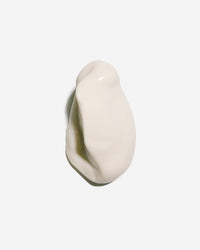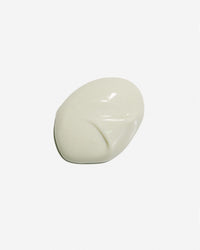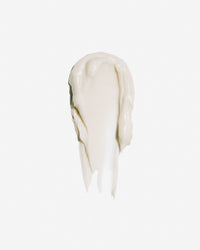There are three categories of cosmetics: conventional products, natural products and certified organic products.
Conventional cosmetics are the most common category of cosmetics, accounting for around 80% of cosmetics in stores. They often highlight the use of one or more natural ingredients, but also use chemicals with worrying properties. This makes it difficult to trust their products, and it's very complicated to decipher their ingredients. In general, brands lack transparency with consumers by using attractive packaging, slogans, and bottles to disguise the true formula.
Natural cosmetics are products made with only natural ingredients derived from plants, minerals, or water. However, these ingredients are not necessarily organic, meaning they are free from chemical fertilizers, pesticides, or GMOs. The term "natural" also has no regulatory value and does not guarantee animal or environmental protection. Marketing uses terms like "natural" or "with argan oil" to confuse consumers. In reality, only organic cosmetics are regulated.
Organic cosmetics are labeled products, meaning they carry an organic label. They are formulated without ingredients that pollute or harm your health and/or the planet. You have two options to determine the true category of your product. The first is to decode the INCI ingredient list. (See the article on the ingredient decoding application.) The second is to trust organic labels recognized by the industry and authorities.
There are a multitude of labels in France and abroad that certify so-called "organic" cosmetics. A cosmetic product obtains an organic label provided it complies with a charter of the label in question. The most well-known labels operate in the same way: they exclude chemical ingredients such as paraffins, PEG, propyl, alkyl, etc., and they impose a minimum use of natural ingredients and ingredients from organic farming.
Cosmebio issues its label on cosmetics containing 95 to 100% natural ingredients, 95 to 100% organic ingredients on plant ingredients and with a maximum of 5% of ingredients approved in a restrictive list.
The French organization Ecocert offers two levels of certification: BIO and ECO. For the BIO label, the ECOCERT group labels a product when the cosmetics brand uses only ingredients derived from renewable resources and processed using environmentally friendly processes. A minimum of 95% of the total ingredients must be of natural origin or natural. For the ECO label, a minimum of 50% of the formula's plant-based ingredients must be sourced from organic farming, and a minimum of 5% of the total ingredients must be sourced from organic farming.
The English Soil Association certifies organic products if a maximum of organically grown ingredients and a minimum of non-organic raw materials are used in the creation of the cosmetic.
The German BDIH label is affixed to the packaging if the products are formulated from ingredients not tested on animals, produced using gentle chemical processes and contain a maximum of plant-based ingredients in organic quality.
The Italian AIAB-ICEA label was created and supervised by AIAB (Association for Organic Agriculture) and ICEA (Certification Institute for Ethics and the Environment). It supports the use of organic ingredients, but without any organic minimum requirements. An exhaustive list of prohibited substances must also be respected, such as animal testing, PEG, PPG, silicones, parabens, etc.
The Natrue label is very demanding and strict. It offers three levels of certification:
- Natural cosmetics.
- Natural cosmetics must be partially organic: 70% of ingredients of plant or animal origin are organic, high levels of undenatured natural substances)
- Natural and organic cosmetics: 95% of ingredients of plant or animal origin are organic, very high levels of undenatured natural substances.
On January 1, 2017, to facilitate consumer understanding of all these labels, a common European-wide label was established. Cosmos Organic was created by five European associations and certification bodies: Cosmébio, Ecocert, Soil Association, BDIH, and ICEA. The words "Cosmos Organic" or "Cosmos Natural" must be affixed under each label that has signed this charter on product packaging or certified by the founding members.
A formulation with the classic Cosmebio label contains 95 to 100% natural ingredients, 95 to 100% organic ingredients on the plant ingredients and a maximum of 5% of ingredients approved in a restrictive list. To integrate the new Cosmos Organic label, two new criteria have been added to the original ones: the content of organic ingredients on the total ingredients increases, going from 10 to 20%. and only biodegradable ingredients are accepted. For Cosmos Natural, there are no minimum percentages of organic ingredients. The addition of Cosmos Organic or Natural under each label makes it easier for consumers to purchase an organic product and harmonizes the marketing of cosmetic products in Europe.
And the animals?
Since 2009, European cosmetics regulations have prohibited animal testing. This rule remains unclear. The organic labels above prohibit all animal testing. In addition to a label, there is a logo that certifies cruelty-free products: the "leaping bunny." Keep this in mind when making your purchase.
One Voice
The One Voice association issues a label to brands to indicate to consumers which products are not tested on animals, which do not contain products of animal origin, with the exception of honey and beeswax, and whose ingredients are from organic farming.
Vegan
Founded in 1944, the British Vegan Association labels cosmetic products if they contain plants and minerals but are free of ingredients of animal origin (no milk, eggs, wax, lanolin, animal collagen, or animal fat, etc.). Vegan cosmetics are not tested on animals.
All these labels have some limitations, however. The ECOCERT, Natrue, and BDIH labels accept palm oil derivatives. However, palm oil is involved in the disappearance of 50% of tropical forests, the extinction of orangutans, and thousands of other species. Similarly, these three labels have no restrictions on esterified and hydrogenated oils, which produce trans fatty acids, the high consumption of which can lead to signs of inflammation throughout the body. Similarly, sodium lauryl sulfate is also authorized. This is a sulfated surfactant with a powerful detergent action that can be irritating. The ECOCERT, Natrue, BDIH, and Nature et progrès labels accept PET packaging. PET, or Polyethylene terephthalate, is a plastic that can be carcinogenic.




